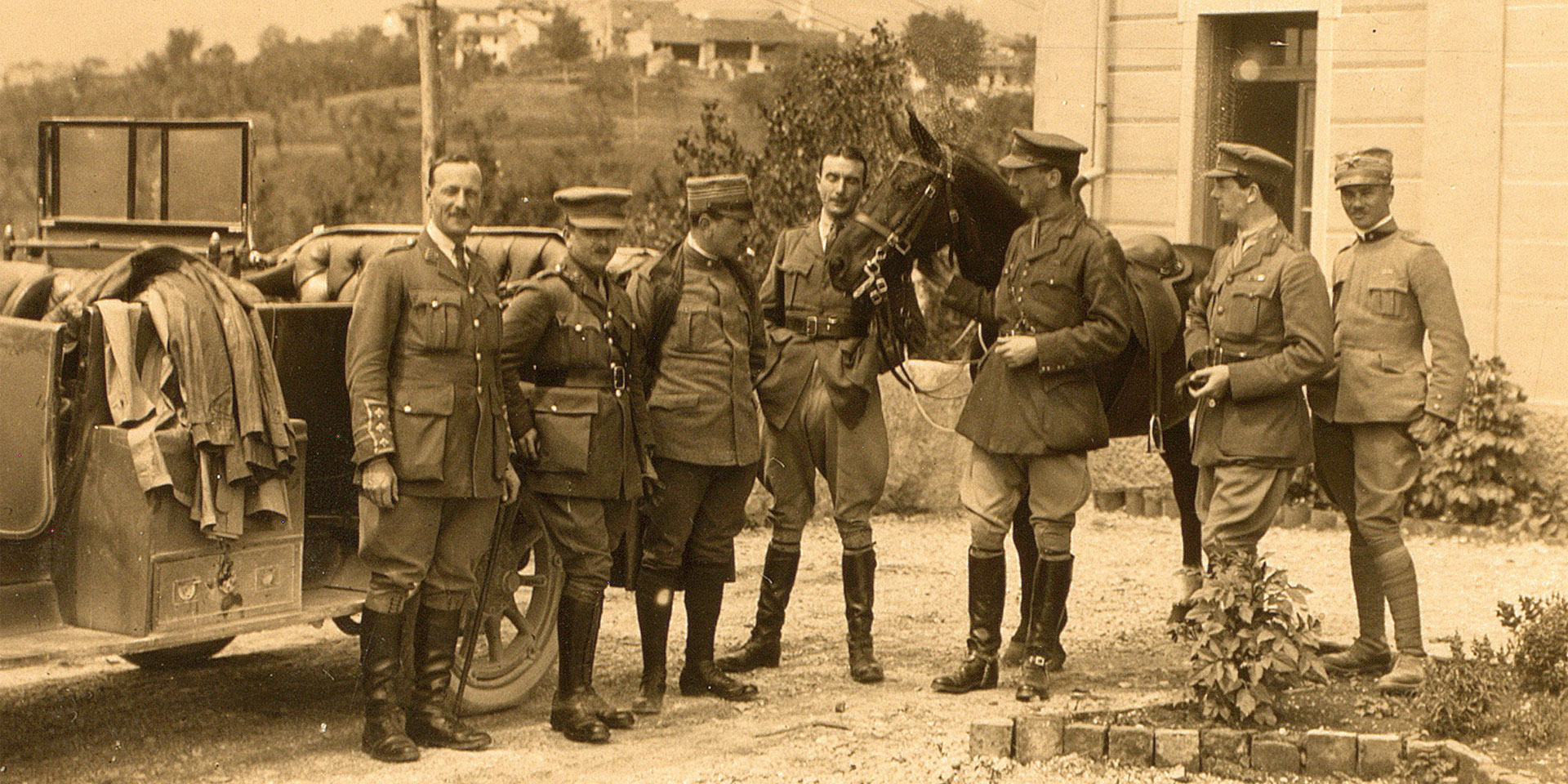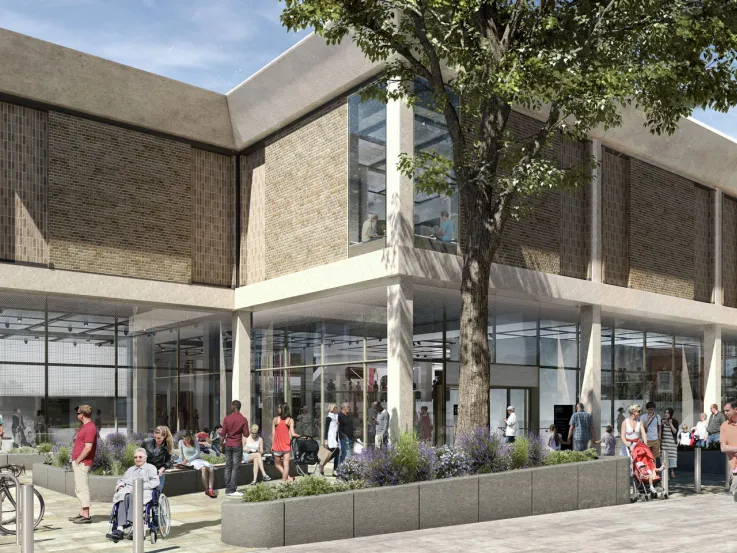Kensington soldier’s archives describe secret parachute mission in the First World War
One hundred years ago in June 1918, Major John Carter was serving as an intelligence officer in Italy and assisting in parachuting agents behind enemy lines. His unpublished archives and photographs shed light on a top secret and pioneering mission during the First World War.
After the Italian Army was defeated at Caporetto in November 1917, an Anglo-French expeditionary force was sent to assist them. While most British soldiers undertook conventional military duties on the Italian front, Carter was engaged in more clandestine activities.
In June 1918, Carter was involved in planning sabotage operations against Austrian war production factories, and organising and reporting on a series of parachute trials under the codename of 'Tinpot'. Carter and his British and Italian colleagues developed a way of dropping a man at low level through the floor of a converted Savoia-Pomilio SP4 reconnaissance and bomber aircraft. This operational dropping of soldiers or equipment by parachute was a new concept at the time.
The Royal Air Force conducted secret trials of the equipment at Grossa and San Pelagio aerodromes. Carter sent a series of photographs from the tests with his report to his superiors. His account demonstrates the dangers of low-level parachuting, describing how 'the parachute body was torn on leaving the machine... [and] the rope attached to the parachute got between Captain Bowen's legs and caused him to turn two somersaults before the parachute opened'. Remarkably Bowen landed safely.
When the British began supplying Italian intelligence with parachutes for agent dropping, members of the project also suggested using black parachute silk, instead of the white used in the trails. This aided concealment as agents descended into enemy territory at night.
Carter's correspondence also contains references to incendiary or explosive devices accompanying the parachutists. In September 1918, he wrote that two military intelligence non-commissioned officers were arriving in Rome from England with 'ten new parachutes' and '20 small incendiary apparatus'. Several agents were eventually dropped by SP4 behind Austrian lines, some of whom were equipped with the mysterious 'tube' incendiary devices.
In August 1918, Carter reported on the first mission:
'At 1,200 feet, east of Vittorio, in the vicinity of Saroni, they let the parachute go. [Captain William] Barker saw the parachute open out beautifully and there seems little doubt that the descent was made successfully. The return journey, in spite of the inky darkness and attempts of the enemy to fix them with searchlights, was made in safety.'
Carter's papers show the concept of parachuting agents or special forces into occupied territory to wage a secret war of sabotage and subversion originated much earlier than usually thought; the activities of remarkable men like John Carter occurred over 20 years before the Special Operations Executive were carrying out similar missions.
Notes to editors
For more information please contact Kelly Scandone on marketing@nam.ac.uk or 020 7881 2433
About Major John Carter
John Fillies Carré Carter (1882-1944) was born in St Luke's, Halifax, Nova Scotia, Canada to Major Charles Carré Carter of the Royal Engineers and his wife. Carter was commissioned a second lieutenant with the Indian Staff Corps on 28 July 1900 and later served in Waziristan on the North West Frontier. He was seconded to the Indian Police Service in Burma in 1905, and was with the 25th Sikhs as Captain by July 1909.
In 1914, Carter joined British intelligence in MI5's G section, which focused on preventing any subversion of Indian troops serving in the European theatre. Carter's files provide a daily record of his intelligence work in London, including meeting named agents and undertaking counter espionage operations. He left G section on 4 March 1918 for a new posting in Rome with the Special Intelligence Section of the Italian Expeditionary Force. In June 1918, he began working on 'Tinpot' and would eventually reach the rank of brevet-lieutenant colonel.
In 1919, while living in Kensington, London, Carter joined the Metropolitan Police. Working for the Directorate of Intelligence at Scotland House, he was Assistant Director and co-responsible for providing regular security reports to the British cabinet. He was appointed Deputy Assistant Commissioner of the Metropolitan Police in 1922 and Cavailier of the Order of St Maurice and St Lazarus by the King of Italy the following year. In June 1925, he was made a Freeman of the City of London, after having been made a Commander of the Order of the British Empire. He took command of No 2 District (North West London) in 1933 and was Assistant Commissioner 'A' of the Metropolitan Police from November 1938, a post he held until September 1940.
National Army Museum
The National Army Museum is the leading authority on the history of Our Army. Founded in 1960 by Royal Charter and established for the purpose of collecting, preserving and exhibiting objects and records relating to the Land Forces of the British Crown, it is a museum that moves, inspires, challenges, educates and entertains. The Museum seeks to tell the story of the Our Army, the personal experiences of the soldiers who have served in it and to connect the British public and its army, demonstrating how the role of Our Army and its actions are still relevant today.
Heritage Lottery Fund
Thanks to National Lottery players, we invest money to help people across the UK explore, enjoy and protect the heritage they care about - from the archaeology under our feet to the historic parks and buildings we love, from precious memories and collections to rare wildlife.
For more information, please contact Katie Owen, HLF press office on Tel: (020) 7591 6036 out of hours mobile: 07973 613820.






